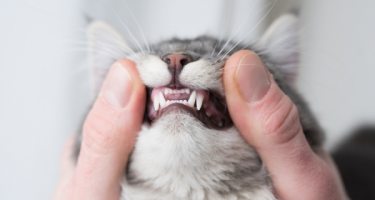What you need to know about dental procedures
‘Dentals’ are one of the most common routine procedures we perform in our day-to-day veterinary practice. It’s important to understand the ins-and-outs of these procedures and why they are so involved. Here are a few things you should know:
Your pet needs a general anaesthetic
For us to accurately assess and treat dental disease, a general anaesthetic is necessary. Unfortunately, we can’t ask your pet to ‘open wide’, and to keep us safe and negate any pain or discomfort for your pet, they must be asleep.
An anaesthetic enables us to clean every tooth thoroughly and safely remove diseased teeth. Anaesthesia-free cleaning is not ethical, and it can lead to pain and fear in your pet, and may also hide underlying problems in your pet’s mouth. Without a general anaesthetic, the cause of the problem is not able to be addressed.
You should not allow anyone to perform anaesthesia-free cleaning on your pet’s teeth and you should talk to us if you have any concerns.
Sometimes extractions are necessary
When thinking about our own dental experiences and comparing them to that of our pets, extraction of a tooth or multiple teeth may sound scary. The options, however, for saving teeth in our pets are limited. A pet with severe dental disease has usually lost a significant amount of bone and soft tissue along with the roots of the tooth, and this can be very painful. Extraction is often the only way we can restore oral health, remove the source of the pain and prevent the disease from spreading to neighbouring teeth.
What happens if your pet has to have multiple teeth removed?
Adult dogs have 42 teeth, and adult cats have 30, so even after multiple extractions, there will still be enough teeth to enable chewing. Once, however, we remove a tooth, the dentition of the mouth is changed, and this can alter the chewing action and the natural cleaning action of chewing. Opposing teeth may be prone to tartar accumulation, so ongoing regular dental checks are critical.
We are always happy to answer any further questions you might have about dental procedures.

